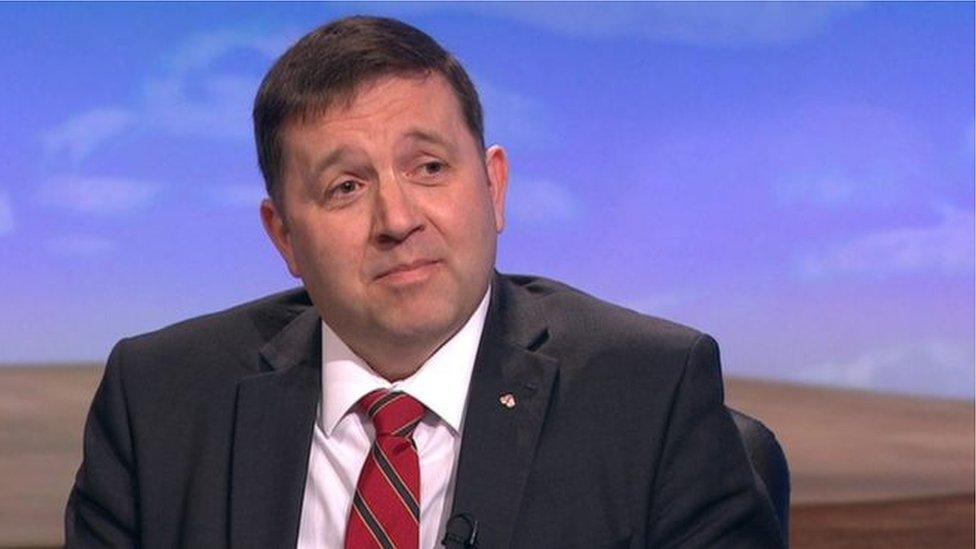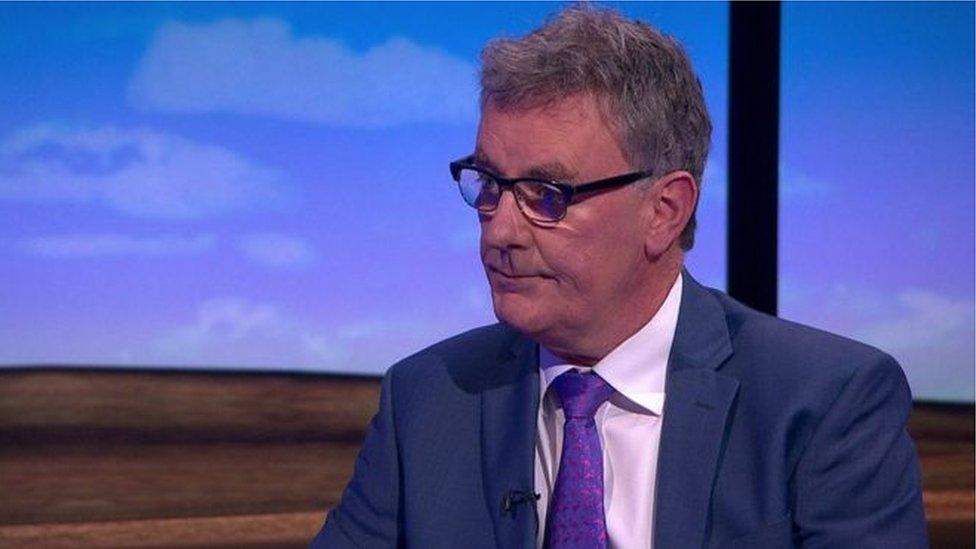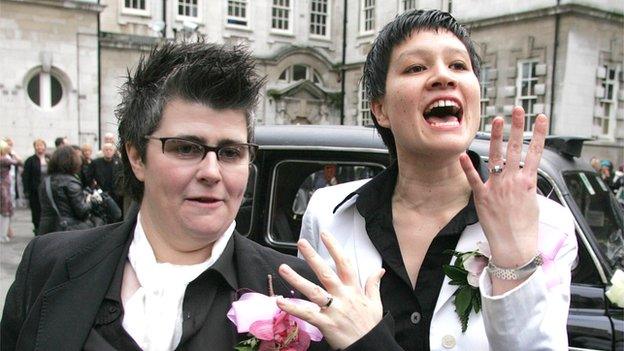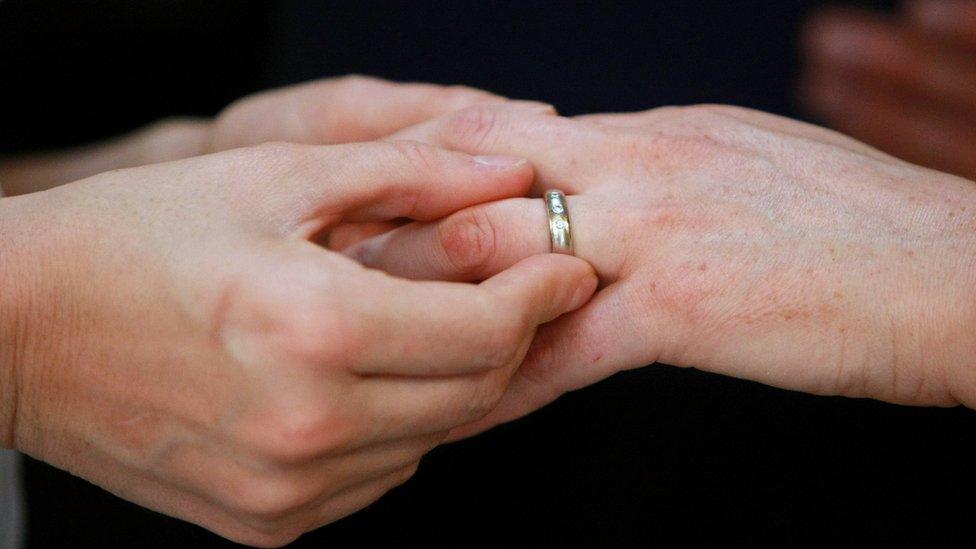Petition of concern 'abused' - UUP leader Robin Swann
- Published

Robin Swann said he will not sign a petition of concern on same-sex marriage because the mechanism has been abused
UUP leader Robin Swann has said he is "not minded" to sign a petition of concern preventing the introduction of same-sex marriage.
The matter could arise if devolution is restored.
Mr Swann said he will vote against any change to the definition of marriage in Northern Ireland or any change to current abortion laws.
However he will not sign a petition of concern to veto such moves because he says the mechanism has been abused.
Asked on BBC's Inside Politics programme if this would apply to other UUP opponents of same sex marriage, Mr Swann said his Assembly group has not discussed the matter.
But he pointed out that other UUP MLAs are on record as indicating they will not sign a petition of concern.
'Abhorrent to democracy'
In 2015 a majority of Northern Ireland Assembly members voted in favour of same-sex marriage for the first time, but the motion was blocked after the Democratic Unionist Party (DUP) deployed a petition of concern that required the proposal to achieve a cross-community majority.
However, at the last Assembly election in March, 28 DUP MLAs were elected, meaning the party would require the backing of two other MLAs to trigger a petition of concern on any issue.

What is a petition of concern?
The measure was designed as a way to safeguard minority rights in Northern Ireland's power-sharing assembly.
If a petition of concern is presented to the assembly speaker, any motion or amendment will need cross-community support.
In such cases, a vote on proposed legislation will only pass if supported by a weighted majority (60%) of members voting, including at least 40% of each of the nationalist and unionist designations present and voting.
Effectively this means that, provided enough MLAs from a particular community agree, that community can exercise a veto over the assembly's decisions.

The Traditional Unionist Voice (TUV) leader Jim Allister has indicated that same-sex marriage might be the one issue on which he would consider backing such a petition.
Mr Swann said it is vital that Northern Ireland's voice should be heard in the House of Commons and that as many of the 18 constituencies as possible should be represented.
He described Sinn Féin's abstentionism as "galling" and "abhorrent to democracy".
However he refused to advise UUP supporters in Foyle, where the party is not standing, on whether they should vote tactically for the SDLP or back the DUP.
Mr Swann accused Sinn Féin of double standards in condemning the Manchester bombing whilst not condemning a previous IRA attack on a shopping centre in the city.
'Revitalisation of unionism'
The UUP leader backed the PSNI Chief Constable's handling of the increased terrorist alert across the UK, saying that he trusted that George Hamilton would call for army support if his intelligence about he threat in Northern Ireland told him it was necessary.
Mr Swann campaigned in favour of Brexit during last year's referendum.
He said he does not believe Brexit has weakened the union, pointing to what he regards as a "revitalisation of unionism throughout the UK".

Robin Swann expressed his full confidence in Strangford MLA and former UUP leader Mike Nesbitt
'Freedom of conscience'
Questioned about what policy differences separate the UUP from the DUP, Mr Swann highlighted his party's opposition to the proposed Historical Investigations Unit which it regards as a secondary police force.
He also cited the party's commitment to a new manufacturing strategy and the freedom it extends to its representatives to make up their own mind on matters of conscience.
Asked whether photographs of the former UUP leader Mike Nesbitt published in the newspapers earlier this month had impacted on his party's campaign, Mr Swann referred any specific questions about the incident to Mr Nesbitt's lawyer.
However, he added that he believes the photographs are in the "far distant past" and the general public has moved on.
He expressed his full confidence in the Strangford MLA.
- Published26 June 2015

- Published2 November 2015
